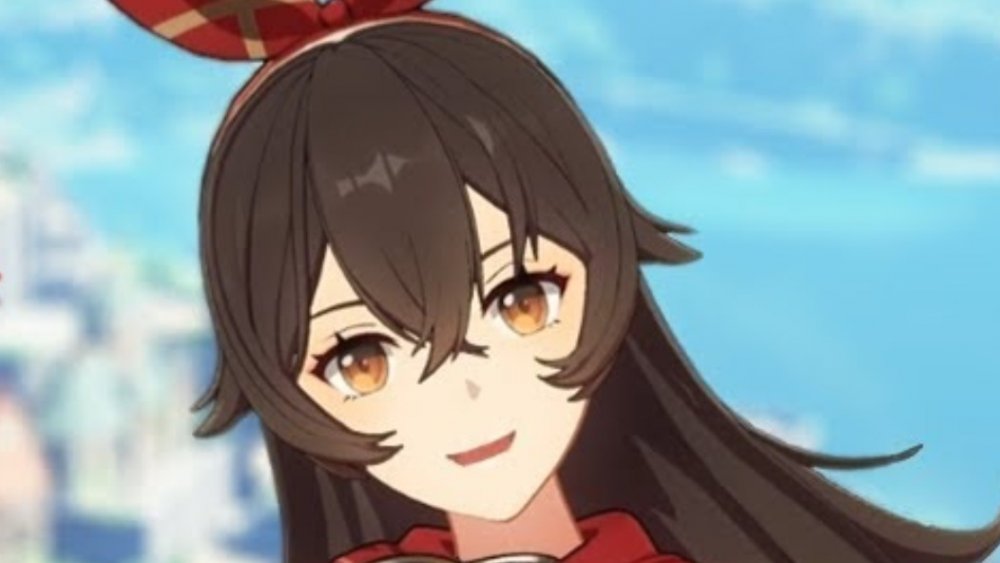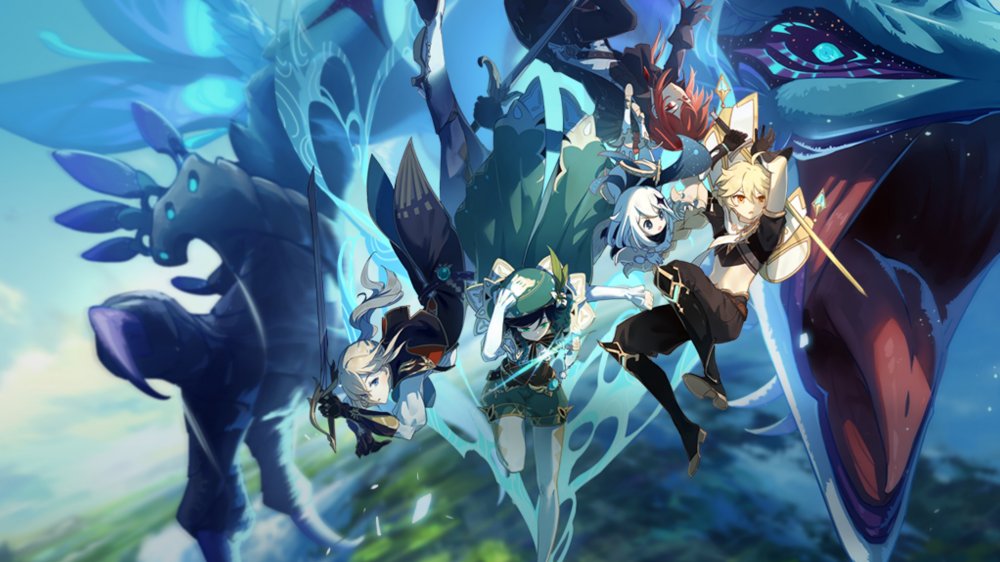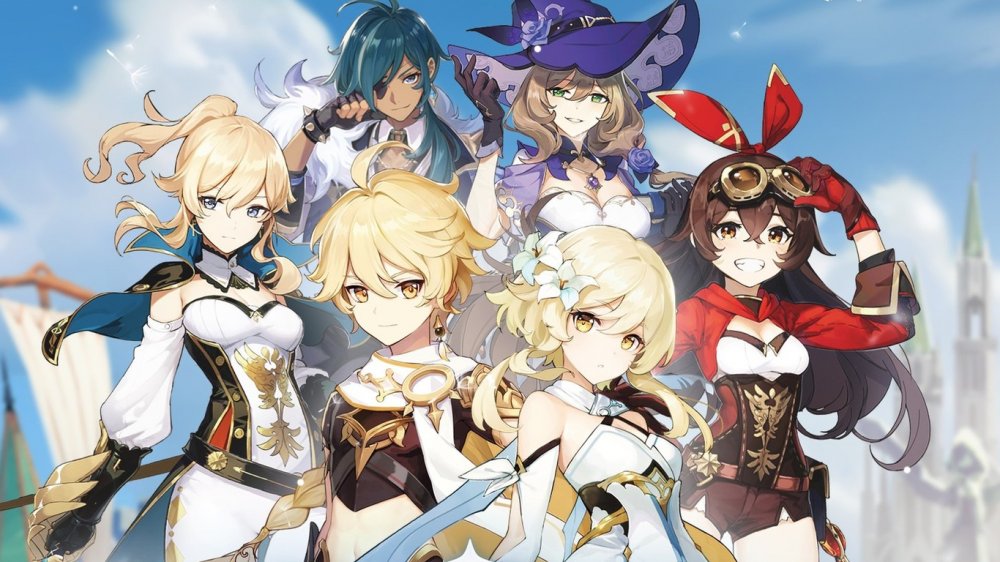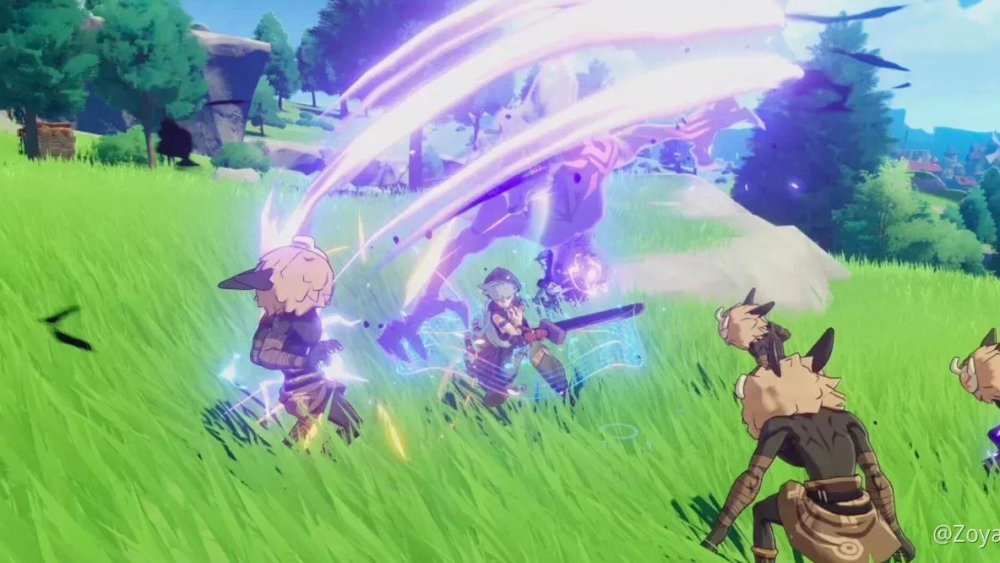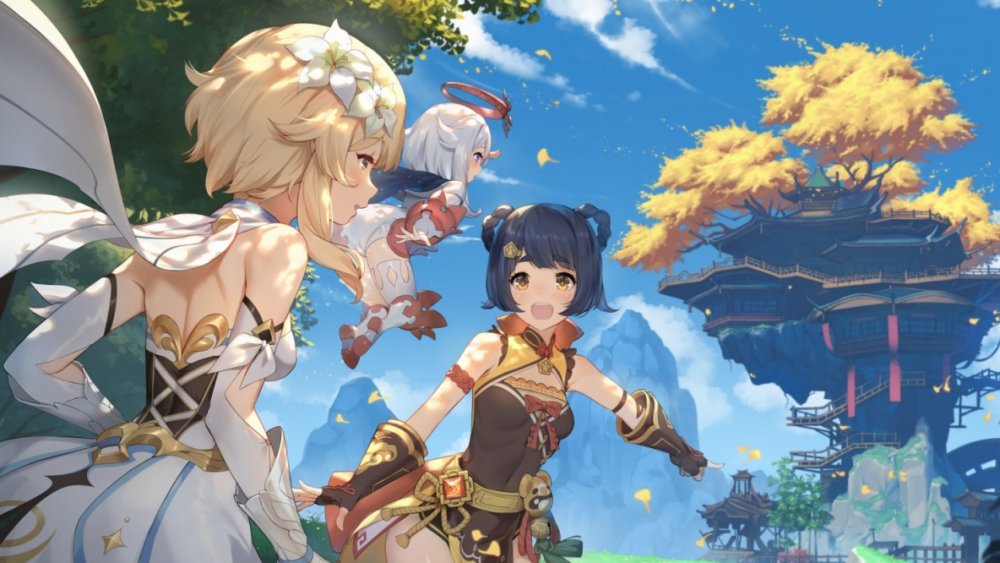The Dark Truth Behind Genshin Impact
Before Genshin Impact was even playable, it caught the eye of the gaming community. When publisher miHoYo first teased the game, it drew accusations of being little more than an anime Breath of the Wild clone, which only amplified when it got delayed from Spring 2020 until Fall 2020.
When Genshin Impact did come out on Sept. 28, 2020, it did something unexpected — it shocked critics and Breath of the Wild fans alike as a beautiful and entertaining open-world RPG. The game hit the ground running, with 17 million installs within the first few days. Things got even crazier after that. Genshin Impact blew up on streaming platforms and earned $100 million in revenue within the first two weeks, becoming the most successful launch for an original IP from a Chinese developer.
So how did a free-to-play game become so successful so fast, and why has that success created a backlash in the gaming community? The secret lies in the game's loot box system, which uses a gambling microtransaction structure known as "gacha" and is the real dark truth behind Genshin Impact.
Gacha is a free-to-play architecture that generates revenue
Even if gacha is an unfamiliar term, you are likely familiar with some of its basic mechanics. Gacha games are popular in Asian markets such as China, Japan, and South Korea, where free-to-play games have a "spinning" mechanic that lets players spend money for a chance at better items or characters. Just look at Marvel Contest of Champions to see an example of a popular Western mobile game that does the same thing.
In truth, these are the same mechanics behind loot boxes in free-to-play battle royale games like Apex Legends or Call of Duty: Warzone. While these are often augmented by a battle pass system or achievement rewards, there is almost always an option out there to spend real money for a chance to open more loot boxes. Thanks to the well-publicized backlash against titles like Star Wars: Battlefront 2, developers know to keep the items in loot boxes cosmetic at best.
In the places gacha is most popular, its potential for predatory practices and addictiveness has made it heavily regulated — just like real gambling. The most aggressive forms of gacha, like "complete gacha," are banned outright in Japan.
Genshin Impact hides some gacha elements in complex currency
As players begin exploring endgame activities in Genshin Impact – maxing out characters and collecting high-value loot — some of the more frustrating gacha elements start to appear. Much of this manifests itself in a complex and confusing system of in-game currencies, with one in particular sending fans into a rage: Original Resin.
Original Resin, while not technically part of the proper gacha cycle of spinning for drops, is a stalling mechanic that refreshes at a set rate that is common in gacha games. Original Resin recharges passively, at a rate of one per eight minutes, until it reaches its cap of 120. This means that spending extra time away won't mean more Original Resin, and only logging in multiple times per day will maximize Original Resin use.
Why does this matter? In-game, Original Resin is a resource spent to receive high-tier rewards when fighting elite bosses. Without enough Original Resin, fighting tough bosses for better rewards becomes pointless.
The community response to Original Resin was overwhelmingly negative, and miHoYo took note, promising to implement changes to make the system more accommodating. However, the change miHoYo made — raising the level cap — did not fix the underlying problems.
Wishes are a true gacha scheme
If a Genshin Impact player doesn't have the patience for Original Resin to recharge or the free time to log in multiple times per day to optimize its use, what other options are there? The answer is Wishes, the loot box rolling system that is slowly awarded for free but most commonly costs players real money every pull.
Wishes are the only way to get characters like Venti or Klee, who are designed to be rare. In fact, when you tried to pull on Venti's banner before it disappeared, it told you there was only a 0.6% chance of getting the five-star character. The low percentage drives up demand, and pretty soon, people started to spend hundreds, or even thousands, of dollars trying to roll rare items and characters.
Due to the nature of the Twitch and YouTube communities, this has had the possibly unintended, but most likely well-calculated, consequence of creating a secondary streaming audience for Wishes alone. One streamer, Mtashed, giddily gambled away $2,000 of sponsored money while trying to unlock Klee, all to his audience's excitement.
Genshin Impact is facing a backlash for gacha
While Genshin Impact is not the first game to bring gacha style mechanics to a Western audience, it's possibly the most successful. Its free-to-play, high-profile launch across PC, PlayStation 4, Android, and iOS has brought these mechanics to the masses. Meanwhile, Genshin Impact is on its way to becoming the most popular Chinese game in the West.
The backlash has been building ever since. Just six days after Mtashed posted his video where he spent $2,000 rolling for Klee, he posted another video titled "I QUIT." In that video, Mtashed held back tears as he apologized for promoting the game's gacha mechanics and pledged only to stream the game in its free-to-play capacities. The mechanics of the game were predatory, he explained, and while he could write off his Wish bets as a business loss, anyone doing so without a monetized streaming platform was getting scammed.
The future of Genshin Impact looks strong, and miHoYo has already teased future map locations. However, if fans want to continue to play, they will have to learn to accept the most overt gacha mechanics seen in an AAA title for American and European markets yet.

